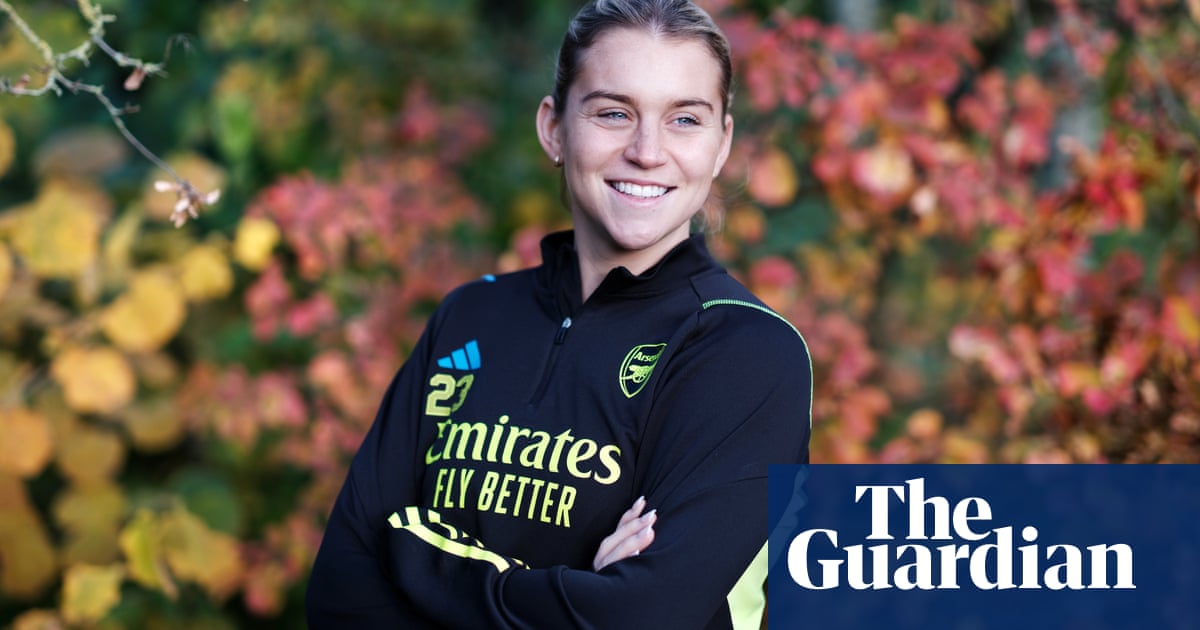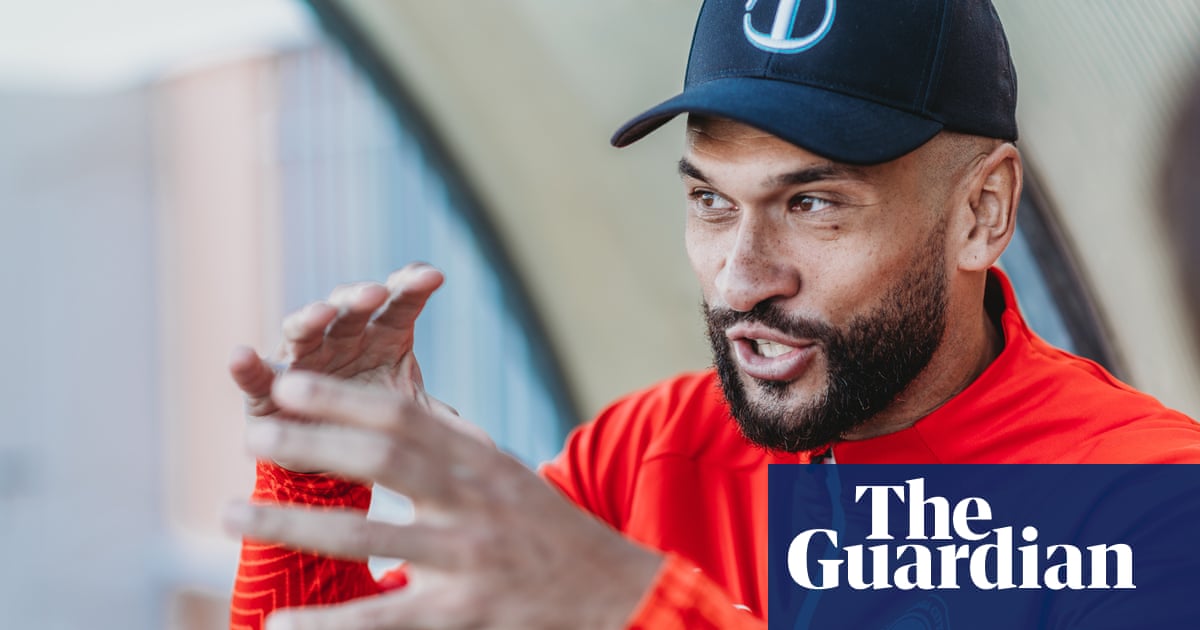
NO!” cries MØ in mock defeat, clutching the purple beret she was crocheting before our conversation, hook and half-constructed hat held to heart. I have just told her that Mercury retrograde is set to fall this week: a celestial event believed to throw certain star signs into flux. MØ, a Leo and Gemini rising sign, is among those potentially affected by this planetary shift. I assure her that it’s actually good given her circumstances: it’s supposed to facilitate new beginnings. Fitting, as she is on the cusp of releasing her make-or-break third album Motordrome.
MØ is in London to shoot a music video for the aptly titled New Moon. It’s the central banger on the album, which articulates the past two years spent taking back control of her life and work. “I was super burnt-out at the beginning of 2019,” the Danish singer says. “I was having panic attacks. My voice was broken. Everything was spinning.”
Real name Karen Marie Ørsted, the musician had been a relentless pop presence since 2014. She first generated a buzz with her debut No Mythologies to Follow, building to a globe-shaking bang in 2015 with the Major Lazer and DJ Snake collaboration Lean On. It is one of Spotify’s most-streamed songs of all time, with more than 1.5bn listens. She has collaborated with Diplo, Charli XCX, Iggy Azalea and Bleachers. She toured the world multiple times – both headlining and supporting the likes of Sia and Years & Years – all while working on her second album, 2018’s Forever Neverland.
Yet she was left feeling empty. “I was riding on the success of those collaborations. I was chasing the stars,” she says. “I don’t regret the opportunity that a worldwide hit gave me, but I was so hard on myself. I loved a lot of the songs but it didn’t feel unified or what I ultimately wanted to present.” The shimmering dance-pop of Forever Neverland was a critical success, establishing her reputation as an individual rather than just a featured artist, but the protracted recording process didn’t feel satisfying.
“On the cover, I look distant,” the 33-year-old says. “I was frustrated by the lack of control. I was constantly moving, so I had no time to get deep into the songs or what I wanted to say.”
She took a break and returned to Copenhagen after the gruelling Forever Neverland tour aligned with the pandemic. Her mother likened her feelings of burnout to dødsdrom: the Danish word for the motorcycle stunt known as the “wall of death”, where drivers loop vertically and horizontally in a large mesh sphere. “That was my brain! I was terrified to stop and crash. I had to make time to reflect.”
Ørsted underwent vocal surgery at the beginning of 2020 – a daunting operation, especially for a musician with her distinct rasp. She had reached a point where “more was always better, my body was aching, and I had no boundaries – I had to work on forgiving myself.” In the months of recovery when she couldn’t sing, she dyed her hair a dark wine red, crocheted, and read Neil Gaiman’s Sandman comics, an elaborate fantasy narrative steeped in dark mysticism, about a spiritual being who personifies dreams and traverses hell and faerie worlds.
She worked alone, writing and playing piano at home. Goosebumps, a slow, vulnerable track about searching for an identity, was the album’s first song, written at a particularly low moment – “That was therapeutic. It brought me back to myself. I felt in the right gear again.” That precipitated a new outlook, with MØ shedding the squint-at-the-summer-sun bangers for a darker, more meditative sound. Not that the album is bereft of big tunes; far from it.
Slowly, she welcomed Scandinavian friends and collaborators for sessions: Sly, Noonie Bao, Caroline Ailin. “When it felt right, it was a joy to be surrounded by friends again and create together. I remembered why I love to collaborate. Especially with women, I felt that power of female unity,” she says. Later, producers Ariel Rechtshaid and SG Lewis brought dislocated disco, electro verve and effervescent pop sounds to the sparse demos. Building on the punk sensibilities of her mid-00s, and a high school-era love of Black Flag and Rammstein, scuzzy guitars punctuate the album. “Elements of it definitely recall my roots,” she says. So far, she has released four singles from the album: Live to Survive, Brad Pitt, Goosebumps, and Kindness, which hopscotch from 80s-inflected synth-pop to open-hearted lyricism and arena-ready grunge.
Ørsted has been an avatar of modern Scandipop, an elastic sound of sweeping choruses and miraculous melodies with deeply emotional lyrics, which has stretched over the years from the original purveyors, the Knife and Robyn, to include newcomers Sigrid and Aurora. “I’m a bit stuck in time with Scandipop,” she says. “It has a grandness but a deeper sadness. I think there’s more of a searching mentality than a sound. I want to get better at understanding genres, because I want to define my own.”
She reached out to Coco O of electro group Quadron during lockdown. “For the longest time, I thought I was the only one having a complete meltdown about putting a vision out into the world,” Ørsted admits. “It was good for me to talk to someone else who had struggled. I want to be better, too, in the future, for other female industry colleagues – to reach out and connect.”
Live to Survive and New Moon rail against the patriarchal attitudes of the music industry: “I work through frustrations with microaggressions I’ve experienced in studios, with producer guys who might not even know how suppressive they’re being.” Ørsted would sometimes feel too hesitant to speak up. “There was a constant feeling of self-doubt in those spaces. Live to Survive is a track that’s about saying: ‘Fuck that toxic energy.’”
In October, Ørsted played a home-town show at Copenhagen’s Den Grå Hal. A group of fans – “the MØ-squad” – flew from across Europe to see her. She will follow that up by heading out on the road again, something she’s both nervous and excited about. “I’m just fantasising about it now; I keep seeing myself on the tour bus watching movies. It feels so good that touring can be my sole focus, and I feel more present in this record than anything before. I am excited for people to hear it.
“I define success differently now,” she says. “Not to sound cheesy, but it’s making music that feels true to who I am and to communicate subjects that are important to me. I think it’s rare to make a song where anyone thinks: ‘This is 1,000% me.’ But these, I want to stand by. All this, while having a healthy life, a strong support system, good relationships – that’s my success.”












